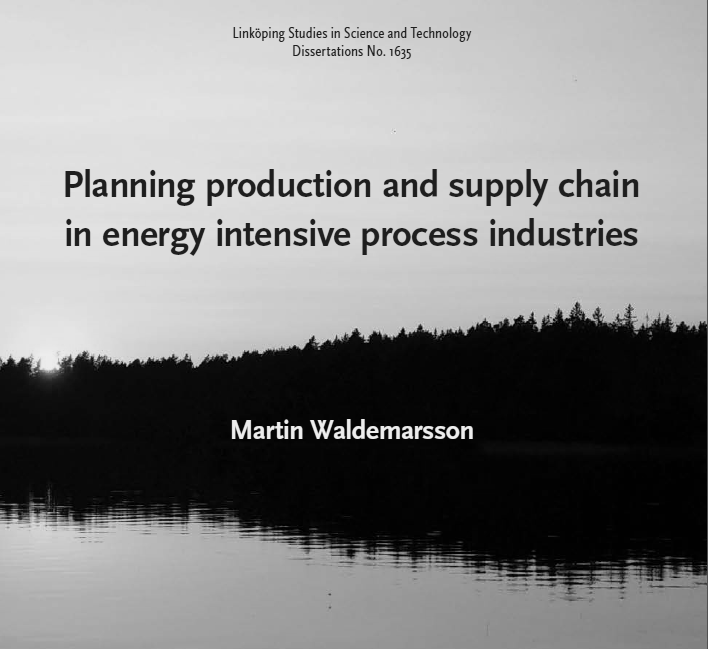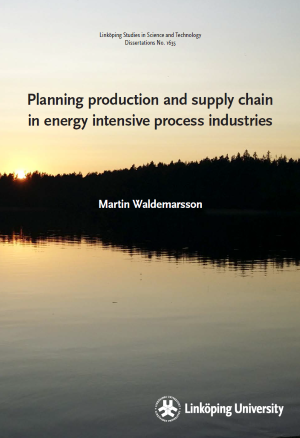Avhandling: Planning production and supply chain in energy intensive process industries

Ämne
Teknik och teknologier, Företagsekonomi, Ekonomi och näringsliv, Energisystem
Nyckelord
Process industry, Energy-intensive production processes, Energy system, Energy management, Production planning, Supply chain planning, Case studies, Mixed Integer Linear Programming, Modelling, Specialty chemicals, Pulp, Steel
Abstract
To make a difference among the energy intensive process industries, this dissertation addresses production planning and supply chain planning problems related to industrial energy management issues. The energy issue is turning more and more important from different angles, involving price as well as environmental problems due to climate change leading to political pressure on all energy users. The process industry sector is one of the largest users of energy, and thus important to analyse. Process industries are also capital intensive and operate on large and expensive process equipment, making it imperative to plan their production well in order to reach preferable capacity utilisation. Therefore this dissertation strives to locate the most important energy management issues for the long term profitability of process industries, and investigates the symbiotic effects of including energy issues in production and supply chain planning.
Three different studies at three case companies are carried out, analysed, and presented in five papers. The cases represent the process industry sectors: chemicals, pulp, and steel. Both qualitative case study methodologies as well as quantitative mathematical modelling and optimisation approaches have been practiced. The research questions are analysed from both an energy system and from a production process point of view, separately as well as combined. Energy is somewhat considered to be the main workforce for process industries and this dissertation exemplifies some of its most important dimensions in this context.
Several prerequisites for putting energy management on the strategic agenda are located in a specialty chemical industry where the importance of introducing a strategic perspective on energy, the way energy is used, and the possibilities of increasing alternative revenue from utilising by- and/or co-products differently are pinpointed. Approaches for including energy issues in planning processes are also suggested in terms of a MILP model for the entire supply chain of a pulp company, including decisions on purchase and transportation of raw maerials, production allocation, energy mix, and distribution. Another example is presented based on the perspectives of economics of scale and lot sizing through economic order quantity principles in a steel company. By using real company data, energy smart approaches in planning and scheduling are developed with respect to the most important intersections between the production processes and their supporting energy system. The accumulated resource intensity and embedded energy could, and probably should, hence be more fairly reflected in the product price. The research finally shows some possible impact with including energy issues in a production and supply chain planning model. By planning differently, production prioritisations can be done, and it is not only possible without any large investments, but also prosperous with savings on both energy and money within reach.
To conclude, planning of production and supply chain has either a direct or an indirect impact on the energy cost-effectiveness of a company. This dissertation argues that such impact also exists in its mutual form, and is very important when the energy issues are large enough, as they often are in the energy intensive process industry sector. Decision makers should thus beware of the short end of the stick that might be devastating in the long run, but also aware of all the possibilities that can bring success and prosperity when the future begins.


